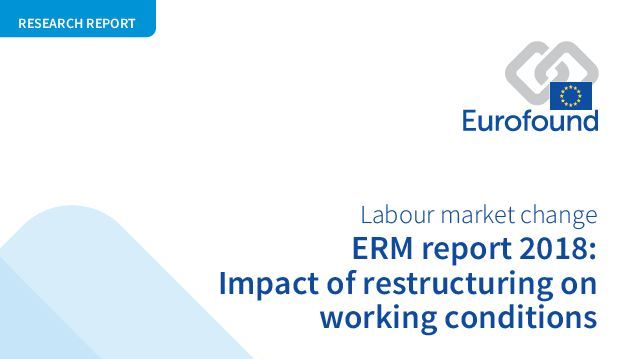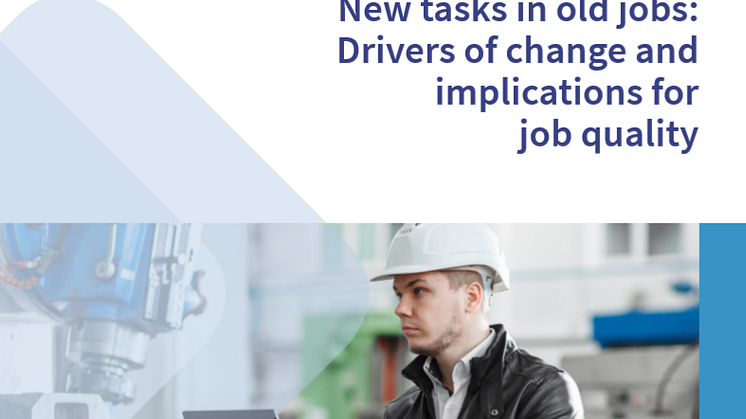
News -
Publication alert: Impact of restructuring on working conditions
Restructuring is a common feature of labour markets and work organisation. Just under one-third of employees in the EU reported that restructuring had taken place in their workplace in the preceding three years. While much research in this area primarily concentrates on the implications for those that lose their jobs, the latest report on restructuring from Eurofound focuses on the impacts for those that remain in an organisation.
While it is necessary for business survival and growth, restructuring can take a heavy toll on employees - not least the 'stayers' or 'survivors' who manage to keep their jobs. Among the 'stayers', both restructuring and downsizing were associated with higher levels of work intensity, exposure to adverse social behaviours and lower levels of satisfaction with working conditions. Downsizing, however, was also associated with a higher incidence of employer-provided training and of cognitively rich work suggesting that some of the human capital-related work dimensions may be positively affected by restructuring. Although not popular policy, early retirement remains an important exit strategy in the case of downsizing.
Using data from the sixth European Working Conditions Survey, the European Restructuring Monitor (ERM) report examines how workplace factors may influence the relationship between restructuring (with job losses) and the outcomes for employees. Key issues surrounding the working conditions of the remaining workforces have not been addressed and the present report aims to bring this issue back to the attention of policymakers and encourage a more holistic and forward-looking approach to restructuring.
In particular, the report reviews policy and academic research on good practice, the findings of which are distilled into a model that may contribute to the design and implementation of effective measures to support the 'stayers'. The good practice elements are exemplified by company case studies from four countries: Bulgaria, Germany, the Netherlands and Spain. Ultimately, what works will depend on the institutional, legislative and economic contexts with local circumstances and cultural norms and expectations also playing an important role.
For further information, download your free copy of the ERM report here.




